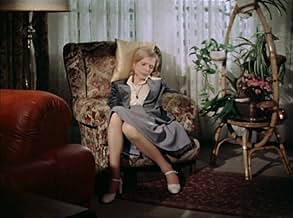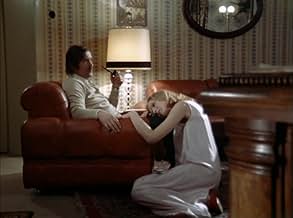Margot is a young, beautiful housewife living in comfy middle class apartment with her ever busy husband, daughter and new baby on the way. Near the end of her term she starts to feel uneasy, "hysteric" and fearful. Margot seems to be losing her mind, and what's worse, starts to believe it. Now she has to persuade other members of her family to take notice....
This is the story of woman in the midst of personal crisis, abandoned, frustrated and feeling trapped by her own life. Developing some sort of dissociation and facing frequent depressive episodes she focuses on herself forgetting about her "duties" as mother and wife along the way. She slowly transforms from quiet, submissive wife to rebellious infant terrible. Margot is taking further steps to distant herself from every day life, cold husband and nosy mother and sister in law - living next door. In fact she sheds middle class skin and runs from clichés and expectations the society has forced upon her. Of course, she's not very subtle while doing it: her goal is to draw attention to herself.
She descends into madness she once feared and - just like the rest of the "normal" people around her - mocked, embracing it by now. More pills another sip of cognac...and the fear takes a step back. Husband starts to take notice, he is worried, but Margot might be too far gone.
Essentially, without preaching or intervening, Fassbinder just tells a story, no clear solutions, no answers to why is this woman so sad and resentful of her life. But I find this portrayal very true to life (for those who can afford it) and psychologically compelling. Sometimes it's the way sensitive individuals protest against the expectations and shelves they are being stuffed into...sometimes the fear of losing oneself while playing the role is just overwhelming.
The fear of finding the true self...and never finding the true self.




























